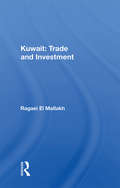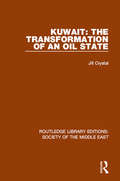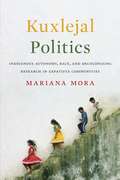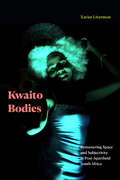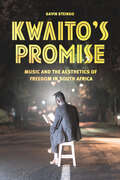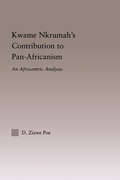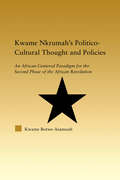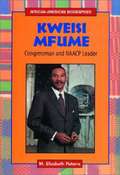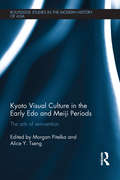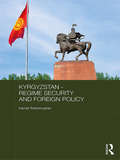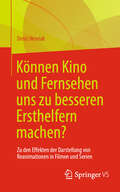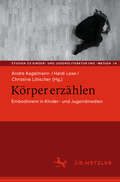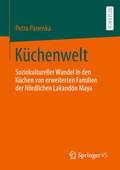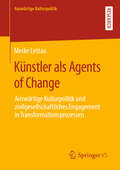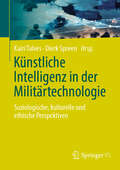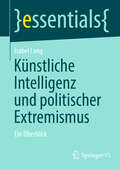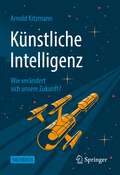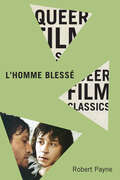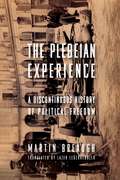- Table View
- List View
Kuwait: Trade And Investment
by Ragaei El MallakhAlthough small geographically, Kuwait casts a disproportionately large shadow in the areas of international finance, energy, and trade. It enjoys a capital-surplus economy, but is still a developing country and one of the fastest growing markets for goods and services. Kuwait's drive toward economic development and self-sustaining investment both at home and abroad arises from the knowledge that the nation's prosperity derives overwhelmingly from a single, nonrenewable asset—petroleum. Professor El Mallakh delineates Kuwait's economic activities and potential and assesses the country's impact on the global economy. Basing his work on two decades of research and writing on Kuwait and neighboring Gulf states, and on interviews with Kuwaiti officials and financial and business leaders, he presents a wealth of detailed and practical information, little of which is readily accessible elsewhere. He also analyzes the use of Kuwait's capital-surplus funds with reference to the region, to Europe, and to the United States, and looks at the country's priorities for future international investment and development projects.
Kuwait: the Transformation of an Oil State (Routledge Library Editions: Society of the Middle East #11)
by Jill CrystalKuwait, unlike most of its neighbours, has a well-established national identity and a long history as a nation, dating back to the eighteenth century. In this book, first published in 1992, Dr. Jill Crystal focuses on two recurring themes in Kuwaiti history: one, the preservation of a sense of community in the face of radical economic, social and political transformations; the second, internal rivalry over the conventions governing relations among members of the community. Crystal skilfully weaves these themes into a broad profile of Kuwait, analysing the nation’s transformation from a pre-oil to an oil economy; its social structure and composition, including the country’s tribal roots and key divisions involving class, gender and immigrant labour; political tensions resulting from the nation’s sudden wealth and the accompanying changes in social structure; and its relations with other countries in the Gulf and the Middle East.
Kuxlejal Politics: Indigenous Autonomy, Race, and Decolonizing Research in Zapatista Communities
by Mariana MoraOver the past two decades, Zapatista indigenous community members have asserted their autonomy and self-determination by using everyday practices as part of their struggle for lekil kuxlejal, a dignified collective life connected to a specific territory. This in-depth ethnography summarizes Mariana Mora's more than ten years of extended research and solidarity work in Chiapas, with Tseltal and Tojolabal community members helping to design and evaluate her fieldwork. The result of that collaboration—a work of activist anthropology—reveals how Zapatista kuxlejal (or life) politics unsettle key racialized effects of the Mexican neoliberal state. Through detailed narratives, thick descriptions, and testimonies, Kuxlejal Politics focuses on central spheres of Zapatista indigenous autonomy, particularly governing practices, agrarian reform, women's collective work, and the implementation of justice, as well as health and education projects. Mora situates the proposals, possibilities, and challenges associated with these decolonializing cultural politics in relation to the racialized restructuring that has characterized the Mexican state over the past twenty years. She demonstrates how, despite official multicultural policies designed to offset the historical exclusion of indigenous people, the Mexican state actually refueled racialized subordination through ostensibly color-blind policies, including neoliberal land reform and poverty alleviation programs. Mora's findings allow her to critically analyze the deeply complex and often contradictory ways in which the Zapatistas have reconceptualized the political and contested the ordering of Mexican society along lines of gender, race, ethnicity, and class.
Kwaito Bodies: Remastering Space and Subjectivity in Post-Apartheid South Africa
by Xavier LivermonIn Kwaito Bodies Xavier Livermon examines the cultural politics of the youthful black body in South Africa through the performance, representation, and consumption of kwaito, a style of electronic dance music that emerged following the end of apartheid. Drawing on fieldwork in Johannesburg's nightclubs and analyses of musical performances and recordings, Livermon applies a black queer and black feminist studies framework to kwaito. He shows how kwaito culture operates as an alternative politics that challenges the dominant constructions of gender and sexuality. Artists such as Lebo Mathosa and Mandoza rescripted notions of acceptable femininity and masculinity, while groups like Boom Shaka enunciated an Afrodiasporic politics. In these ways, kwaito culture recontextualizes practices and notions of freedom within the social constraints that the legacies of colonialism, apartheid, and economic inequality place on young South Africans. At the same time, kwaito speaks to the ways in which these legacies reverberate between cosmopolitan Johannesburg and the diaspora. In foregrounding this dynamic, Livermon demonstrates that kwaito culture operates as a site for understanding the triumphs, challenges, and politics of post-apartheid South Africa.
Kwaito's Promise: Music and the Aesthetics of Freedom in South Africa
by Gavin SteingoIn mid-1990s South Africa, apartheid ended, Nelson Mandela was elected president, and the country’s urban black youth developed kwaito—a form of electronic music (redolent of North American house) that came to represent the post-struggle generation. In this book, Gavin Steingo examines kwaito as it has developed alongside the democratization of South Africa over the past two decades. Tracking the fall of South African hope into the disenchantment that often characterizes the outlook of its youth today—who face high unemployment, extreme inequality, and widespread crime—Steingo looks to kwaito as a powerful tool that paradoxically engages South Africa’s crucial social and political problems by, in fact, seeming to ignore them. Politicians and cultural critics have long criticized kwaito for failing to provide any meaningful contribution to a society that desperately needs direction. As Steingo shows, however, these criticisms are built on problematic assumptions about the political function of music. Interacting with kwaito artists and fans, he shows that youth aren’t escaping their social condition through kwaito but rather using it to expand their sensory realities and generate new possibilities. Resisting the truism that “music is always political,” Steingo elucidates a music that thrives on its radically ambiguous relationship with politics, power, and the state.
Kwame Nkrumah's Contribution to Pan-African Agency: An Afrocentric Analysis (African Studies)
by Daryl Zizwe PoeThis study analyzes contributions made by Kwame Nkrumah (1909-1972) to the development of Pan-African agency from the 1945 Pan-African Congress in Manchester to the military coup d'etat of Nkrumah's government in February 1966.
Kwame Nkrumah's Politico-Cultural Thought and Politics: An African-Centered Paradigm for the Second Phase of the African Revolution (African Studies)
by Kwame Botwe-AsamoahThis study critically synthesizes and analyses the relationship between Kwame Nkrumah's politico-cultural philosophy and policies as an African-centered paradigm for the post-independence African revolution. It also argues for the relevance of his theories and politics in today's Africa.
Kwanzaa and Me: A Teacher's Story
by Vivian Gussin PaleyALL these white schools I've been sent to are racist," Sonya says. "I'd have done better in a black school. I was an outsider here." These are hard words for Vivian Paley, whose own kindergarten was one of Sonya's schools, the integrated classroom so lovingly and hopefully depicted by Paley in White Teacher. Confronted with the grown-up Sonya, now on her way to a black college, and with a chorus of voices questioning the fairness and effectiveness of integrated education, Paley sets out to discover the truth about the multicultural classroom from those who participate in it. This is an odyssey undertaken on the wings of conversation and storytelling in which every voice adds new meaning to the idea of belonging, really belonging, to a school culture. Here are black teachers and minority parents, immigrant families, a Native American educator, and the children themselves, whose stories mingle with the author's to create a candid picture of the successes and failures of the integrated classroom. As Paley travels the country listening to these stories, we see what lies behind recent moves toward self-segregation: an ongoing frustration with racism as well as an abiding need for a nurturing community. And yet, among these diverse voices, we hear again and again the shared dream of a classroom where no family heritage is obscured and every child's story enriches the life of the schoolhouse. "It's all about dialogue, isn't it?" asks Lorraine, a black third-grade teacher whose story becomes a central motif. And indeed, it is the dialogue that prevails in this warmly provocative and deeply engaging book, as parents and teachers learn how they must talk to each other, and to their children, if every child is to secure a sense of self in the schoolroom, no matter what the predominant ethnic background. Vivian Paley offers these discoveries to readers as a starting point for their own journeys toward community and kinship in today's schools and tomorrow's culture.
Kweisi Mfume: Congressman and NAACP Leader
by M. Elizabeth Paterra"As long as the finish line is ahead, you always have the ability to shape your life no matter who are are," says civil rights leader Kweisi Mfume. He speaks from experience. As a youth lured by neighborhood street gangs, he threw himself into a life without promise for the future. Today, for Mfume, the sky's the limit. This inspiring story illuminates Mfume's pathway from street kid to college student, from radio announcer to political activist, from congressman to NAACP president. Mfume never forgets where he came from and he now dedicates his considerable power and influence to making America a better place.
Kyoto Visual Culture in the Early Edo and Meiji Periods: The arts of reinvention (Routledge Studies in the Modern History of Asia)
by Morgan Pitelka Alice Y. TsengThe city of Kyoto has undergone radical shifts in its significance as a political and cultural center, as a hub of the national bureaucracy, as a symbolic and religious center, and as a site for the production and display of art. However, the field of Japanese history and culture lacks a book that considers Kyoto on its own terms as a historic city with a changing identity. Examining cultural production in the city of Kyoto in two periods of political transition, this book promises to be a major step forward in advancing our knowledge of Kyoto’s history and culture. Its chapters focus on two periods in Kyoto’s history in which the old capital was politically marginalized: the early Edo period, when the center of power shifted from the old imperial capital to the new warriors’ capital of Edo; and the Meiji period, when the imperial court itself was moved to the new modern center of Tokyo. The contributors argue that in both periods the response of Kyoto elites—emperors, courtiers, tea masters, municipal leaders, monks, and merchants—was artistic production and cultural revival. As an artistic, cultural and historical study of Japan's most important historic city, this book will be invaluable to students and scholars of Japanese history, Asian history, the Edo and Meiji periods, art history, visual culture and cultural history.
Kyrgyzstan - Regime Security and Foreign Policy (Central Asian Studies)
by Kemel ToktomushevKyrgyzstan is an interesting example of a relatively weak state, which for its brief period of independence has already ousted two presidents, experienced two revolutions, survived two interethnic conflicts and yet remained intact. This book explores this apparent paradox and argues that the schism between domestic and international dimensions of state and regime security is key to understanding the nature of Kyrgyz politics. The book shows how the foreign policy links to the Manas Air Base, used by the US military and essential for supplying their forces in Afghanistan, the economic arrangements necessary for sustaining the base, both inside and outside Kyrgyzstan, and the myriad of different actors involved in all this, combined to overshadow points of friction to ensure stable continuance of the status quo. Overall, the book shows how broad geopolitical forces and complex local factors together have a huge impact on the formation of Kyrgyz foreign policy.
Können Kino und Fernsehen uns zu besseren Ersthelfern machen?: Zu den Effekten der Darstellung von Reanimationen in Filmen und Serien
by Denis NewiakDurch eine qualifiziertere und häufigere Reanimation (Herz-Lungen-Wiederbelebung) könnten allein in Deutschland jedes Jahr 10.000 Leben gerettet werden. Während das erlernte Wissen aus dem Erste-Hilfe-Kurs zur Fahrschule relativ schnell vergessen ist, rufen Szenen mit Wiederbelebungen aus Serien und Filmen die Notsituation regelmäßig ins Gedächtnis. Nicht immer wird in der Fiktion allerdings so reanimiert, wie es in der Realität am besten wäre. Können die Reanimationen aus der Popkultur trotzdem dabei helfen, uns zu besseren Ersthelfern zu machen? Welchen Beitrag leisten filmische Ausdrucksformen zur Verbreitung von Wissen zu Selbsthilfemaßnahmen für Notsituationen? Und ließe sich diese Erkenntnis auf andere Lebensrisiken und entsprechende Vorsorgemaßnahmen übertragen?
Körper erzählen: Embodiment in Kinder- und Jugendmedien (Studien zu Kinder- und Jugendliteratur und -medien #14)
by Christine Lötscher Andre Kagelmann Heidi LexeKörper und Körperlichkeit werden auf vielfältige Art und Weise in Kinder- und Jugendmedien narrativiert, inszeniert und (re-)präsentiert: Das Spektrum reicht von sexualmoralischen (Selbst-)Beschränkungen der Kinderliteratur über die Vielfalt der Körperentdeckung in Aufklärungsbüchern, über Tabuisierungen und Normierungen von Sexualität und deren emanzipatorischer Infragestellung bis hin zu adoleszenten Normtransgressionen. Erweitert wird diese Variationsbreite in der All-Age-Literatur und in der Fantastik durch Figurationen toter oder untoter Körper sowie durch auf den Körper fokussierte Mensch-Tier-Beziehungen. In vier Abteilungen versammelt der Band Beiträge, die Körperdiskurse in unterschiedlichen Genres der Kinder- und Jugendliteratur sowie im Kinder- und Jugendtheater analysieren. Der Körper wird dabei im Kontext von Normierungen, De-Kategorisierungen und Performanzen, von Einschreibungen, Markierungen und Entgrenzungen, im Kontext von Kollektiven, Sozionarrativen und Transformationsprozessen sowie von Sexualisierung, Gewalt und (Un-)Doing Gender befragt. Dabei werden der erzählte Körper und der darstellende, respektive erzählende Bild- und Textkörper stets in Bezugnahme aufeinander befragt, sodass die Verschränkung literarästhetischer Aspekte mit der Vielfalt des (medialen) Embodiment sichtbar gemacht wird.
Körpergewicht und sozioökonomischer Status: Quantitative Analysen des kausalen Effekts von hohem Gewicht auf den sozioökonomischen Status (Sozialstrukturanalyse)
by Judith LehmannDie letzten Jahrzehnte waren geprägt von der Vorstellung einer Übergewichts-Epidemie. Sowohl bei Kindern als auch bei Erwachsenen in Deutschland ist hohes Körpergewicht immer verbreiteter. Dieses Buch beschäftigt sich mit der Frage, ob Körpergewicht eine Determinante von sozialer Ungleichheit in Deutschland ist, indem betrachtet wird, ob Adipositas im Erwachsenenalter zu Einbußen im sozioökonomischen Status führt. Im Zentrum der Arbeit stehen quantitative Kausalanalysen mit Längsschnitt-Daten des Robert Koch-Instituts und dem Sozio-Ökonomischen Panel. Körpergewicht wird hier nicht nur über den Body Mass Index abgebildet, sondern auch über den Taillenumfang. Als Grundlage für die Analysen wird ein theoretisches Erklärungsmodell erstellt, für das verschiedene soziologische Theorieansätze auf die Fragestellung bezogen werden. Dabei sind neben Überlegungen zu Stigmatisierung und Diskriminierung auch Vorstellungen zu Körper als Kapital zentral. Die Ergebnisse werden im Hinblick auf Limitationen in der Datenlage in Deutschland diskutiert und Anknüpfungspunkte für weitere Forschung zu Körpergewicht als Determinante von sozialer Ungleichheit präsentiert.
Körperoptimierung: Selbstverbesserung zwischen Steigerungsdruck und Leibgebundenheit (Frankfurter Beiträge zur Soziologie und Sozialpsychologie)
by Julia SchreiberDie Ansprüche an die Optimierung des Körpers in spätmodernen westlichen Gesellschaften scheinen in einem Spannungsverhältnis zu stehen zum Leib als jener Dimension des Körperlichen, die auf eine konstitutive Unverfügbarkeit und Begrenztheit verweist. Die vorliegende Arbeit geht diesem Spannungsverhältnis nach, indem sie anhand von narrativ-biografischen Interviews die Vermittlung von gesellschaftlichen Anforderungen und individuellen Praktiken untersucht. Aufgezeigt wird dabei, dass sich die Verdrängung des Leiblichen gerade auch deshalb zunehmend zu normalisieren scheint, weil sie mit bestimmten sozialen und psychischen Bedeutungen versehen ist. Vor diesem Hintergrund werden die Folgewirkungen von Körperoptimierungen, aber auch das Widerstands- und Transformationspotenzial des Leiblichen diskutiert.
Körpersprache für Dummies (Für Dummies)
by Elizabeth KuhnkeDie Autorin zeigt, wie Köpersprache wahrgenommen wird und welche Formen der Körpersprache es gibt (Gesten, Bewegungen etc.), wie sie eingesetzt werden und was sie bedeuten. Buchstäblich von Kopf bis Fuß »übersetzt« sie dann die Körpersprache. Angefangen mit der erhobenen Augenbraue bis zum wippenden Fuß erklärt Elizabeth Kuhnke, was die Körpersprache unseres Gegenübers sagt und was unsere Körpersprache über uns verrät. Dabei erläutert sie, wie der Einsatz von Requisiten (Brille, Schlüssel, Kuli etc.) die Körpersprache noch unterstützt. Sie erfahren die Bedeutung des räumlichen Abstands (»Bannmeile« und deren Überschreitung) und erhalten Tipps für die richtige Körpersprache beim Flirten oder im Vorstellungsgespräch. Ein Kapitel ist dem Verständnis der Körpersprache anderer Kulturkreise gewidmet.
Körpersprache im Beruf für Dummies Das Pocketbuch (Für Dummies)
by Elizabeth KuhnkeSei es in Verhandlungen, Besprechungen oder nur beim Plausch mit Kollegen - wünschten Sie nicht manchmal, Sie könnten die Gedanken Ihres Gegenüber erahnen? Wenn Sie lernen Körpersprache zu lesen, zu verstehen und gezielt anzuwenden können Sie nicht nur die unterschwelligen Botschaften anderer entschlüsseln, sondern auch Ihre eigene Position stärken und Souveränität beweisen. "Körpersprache im Beruf für Dummies" zeigt, wie Köpersprache wahrgenommen wird und welche Formen der Körpersprache es gibt, wie sie eingesetzt werden und was sie bedeuten. Angefangen mit der erhobenen Augenbraue bis zum wippenden Fuß erklärt Elizabeth Kuhnke, was die Körpersprache unseres Gegenübers sagt und was unsere Körpersprache über uns verrät.
Küchenwelt: Soziokultureller Wandel in den Küchen von erweiterten Familien der Nördlichen Lakandón Maya
by Petra PanenkaIn vielen Teilen der Welt ist die Küche ein zentraler Ort des Familien- und Gemeinschaftslebens. Gesellschaftliche und kulturelle Transformationen spiegeln sich dort in den Interaktionen von Familienmitgliedern mit ihrer humanen und nicht-humanen Umwelt wider. In ihrer Dissertation widmet sich Petra Panenka dem soziokulturellen Wandel in den Küchen der erweiterten Familien (cocinas grandes) der Nördlichen Lakandón Maya, einer indigenen Ethnie im Süden Mexikos. In dieser multi-temporalen Ethnografie verbindet sie die Stärken ethnografischer Feldforschung mit der Theoriegenerierung der Grounded Theorie-Forschung. Im Zuge der Analyse entwickelt sie das Konzept Küchenwelt. Das Konzept erfasst durch vier miteinander verwobene Kategorien, wie sich soziokultureller Wandel anhand der Dimensionen der Materialität, der räumlichen und zeitlichen Gestaltungen der Tagesabläufe, der Interaktionen und Praktiken der Familienmitglieder sowie der familialen Sub-Gemeinschaften konstituiert. Aufgrund der interdisziplinären Ausrichtung ist Küchenwelt in Diskursen über die Sozial- und Kulturanthropologie anschlussfähig.
Künstler als Agents of Change: Auswärtige Kulturpolitik und zivilgesellschaftliches Engagement in Transformationsprozessen (Auswärtige Kulturpolitik)
by Meike LettauKünstler und Kulturaktivisten nehmen als Agents of Change eine zentrale Rolle in gesellschaftspolitischen Transformationsprozessen ein. Die Studie untersucht die Rolle zivilgesellschaftlicher Akteure am Beispiel von Kunstfestivals im öffentlichen Raum im Kontext der Umbrüche in Tunesien in den Jahren 2010/11 und der politischen Transformation von einem diktatorischen zu einem demokratischen System. Darüber hinaus werden neue Aufgaben, Herausforderungen und Chancen auf dem Gebiet deutscher auswärtiger Kulturpolitik am Beispiel der kulturellen Programmarbeit und Kooperationsansätze des Goethe-Instituts betrachtet sowie ein Paradigmenwechsel für das Politikfeld entwickelt.
Künstliche Intelligenz in der Militärtechnologie: Soziologische, kulturelle und ethische Perspektiven
by Dierk Spreen Kairi TalvesIn diesem Buch werden die Herausforderungen im Bereich der aktuellen und zukünftigen Militärtechnologie kritisch und fachübergreifend beleuchtet. Der Band trägt zur Versachlichung der Debatte über den Einsatz von Künstlicher Intelligenz in militärischen Kontexten bei und bietet einen differenzierten, informierten und offenen Zugang zur Thematik. Der Band gliedert sich in drei Teile. Im ersten Teil werden Perspektiven auf KI erörtert; wie KI-Systeme von der Öffentlichkeit, von Soldaten und in kulturellen Diskursen verstanden und konstruiert werden. Der Schwerpunkt liegt dabei auf militärischen Anwendungen. Der zweite Teil befasst sich mit den Herausforderungen und Veränderungen, die der Einsatz von KI im Militär mit sich bringt, und geht der Frage nach, wie damit umzugehen ist. Der dritte Teil untersucht die kommunikativen Herausforderungen, die sich aus dem Einsatz von KI im Militär ergeben, sowie die damit verbundenen Chancen und Risiken. Das hochaktuelle und zeitgemäße Buch richtet sich an Forscher und Studenten aller Fachrichtungen, die sich für Militärtechnologie interessieren, sowie an alle, die sich für KI und neue Technologien interessieren.
Künstliche Intelligenz und politischer Extremismus: Ein Überblick (essentials)
by Isabel LangDieses essential bietet einen Überblick über die Nutzung von KI durch Extremist*innen. Es werden Beispiele für die Nutzung von KI durch Extremist*innen angeführt. Zudem wird diskutiert, wie diese dadurch gezielt etwa Propaganda, Hass und Hetze verbreiten. Ferner werden Chancen und Möglichkeiten für (Sicherheits-)Behörden und andere Institutionen für den Umgang mit der Nutzung von KI durch Extremist*innen sowohl in der Bekämpfung von Extremismus als auch der Prävention thematisiert. Relevant ist der Band somit für Vertreter*innen von (Sicherheits-)Behörden, für Mitarbeitende bei Trägern der Extremismusprävention, für Wissenschaftler*innen, aber auch etwa für die IT-Branche.
Künstliche Intelligenz: Wie verändert sich unsere Zukunft?
by Arnold KitzmannKünstliche Intelligenz (KI) durchdringt zunehmend unser gesamtes Leben, angefangen bei den hochwillkommenen kleinen Erleichterungen des Alltags bis hin zu gravierenden gesellschaftlichen Veränderungen in Arbeitswelt, Forschung und Entwicklung sowie der Privatsphäre jedes Einzelnen. Wir können uns dieser Entwicklung nicht (mehr) entziehen oder gar verweigern, sondern sind gefordert, uns mit ihr auseinanderzusetzen. Dieses Buch erörtert philosophische, ethische, politische, ökonomische Aspekte ebenso wie die Problematik der Selbstbestimmtheit, Freiheit und Manipulierbarkeit des Einzelnen. So entsteht ein kleiner Leitfaden für den Leser, um sich selbst in dieser Phase großer gesellschaftlicher Umwälzungen zu positionieren. Last not least spannend: In der Auseinandersetzung mit Künstlicher Intelligenz wird klar, dass sie uns Heutigen mit Fragen konfrontiert, die bereits die Philosophie vor über zweieinhalb Jahrtausenden umtrieb.
L'Homme blessé (Queer Film Classics)
by Robert PayneDrawn into the circuit of men cruising for sex in and around a train station, restless adolescent Henri begins a frenzied pursuit of a dangerously charismatic older man, with sometimes violent and ultimately tragic consequences. Premiering at Cannes in 1983, Patrice Chéreau’s L’Homme blessé (The Wounded Man) was one of France’s first major cinematic releases to depict homosexual desire and queer sexual cultures in an unapologetic and complex way. It is a film that continues to resonate to this day.L’Homme blessé generated controversy with its dark tone and its treatment of an adolescent’s obsessive homoerotic desire, as well as Chéreau’s denial that the film is about homosexuality. Robert Payne guides readers through the powerfully erotic underworld of L’Homme blessé, where the film sidesteps fixed identities and draws viewers into the ambiguous spaces of queer desire, and argues that its visual composition depicts queer ways of seeing and generates queer ways of feeling. A look into the production’s historical and cultural backdrop uncovers a behind-the-scenes story of power and desire between its two screenwriters and the presence of HIV/AIDS hovering ominously and inevitably off screen. Original interviews trace the lives of L’Homme blessé across three continents and three decades and measure the film’s enduring value beyond its prestigious debut.Payne cements L’Homme blessé in its rightful place within queer cultural history and introduces the film to a new generation of viewers.
L'argent
by Guido Galeano Vega Julien SaunierDans ce livre, je souhaite partager mon point de vue sur l’argent. Il existe beaucoup de points de vue, en particulier, une mauvaise interprétation Biblique de la part de nombreuses personnes qui diabolisent l’argent. En lisant ce livre, vous allez comprendre pourquoi il existe des avertissements dans la Bible sur le danger social que représente le facteur financier. Le monde et la vie de chaque individu tourne inévitablement autour de l’argent, d’où l’importance de le comprendre un peu mieux et le valoriser dans une mesure correcte, pour qu’il devienne, en utilisant le sens commun et l’intelligence, un instrument positif dans la vie des personnes et dans l’humanité toute entière.
L'experience plebeienne
by Martin BreaughHow do people excluded from political life achieve political agency? Through a series of historical events that have been mostly overlooked by political theorists, Martin Breaugh identifies fleeting yet decisive instances of emancipation in which people took it upon themselves to become political subjects. Emerging during the Roman plebs's first secession in 494 BCE, the plebeian experience consists of an underground or unexplored configuration of political strategies to obtain political freedom. The people reject domination through political praxis and concerted action, therefore establishing an alternative form of power. Breaugh's study concludes in the nineteenth century and integrates ideas from sociology, philosophy, history, and political science. Organized around diverse case studies, his work undertakes exercises in political theory to show how concepts provide a different understanding of the meaning of historical events and our political present. The Plebeian Experience describes a recurring phenomenon that clarifies struggles for emancipation throughout history, expanding research into the political agency of the many and shedding light on the richness of radical democratic struggles from ancient Rome to Occupy Wall Street and beyond.
